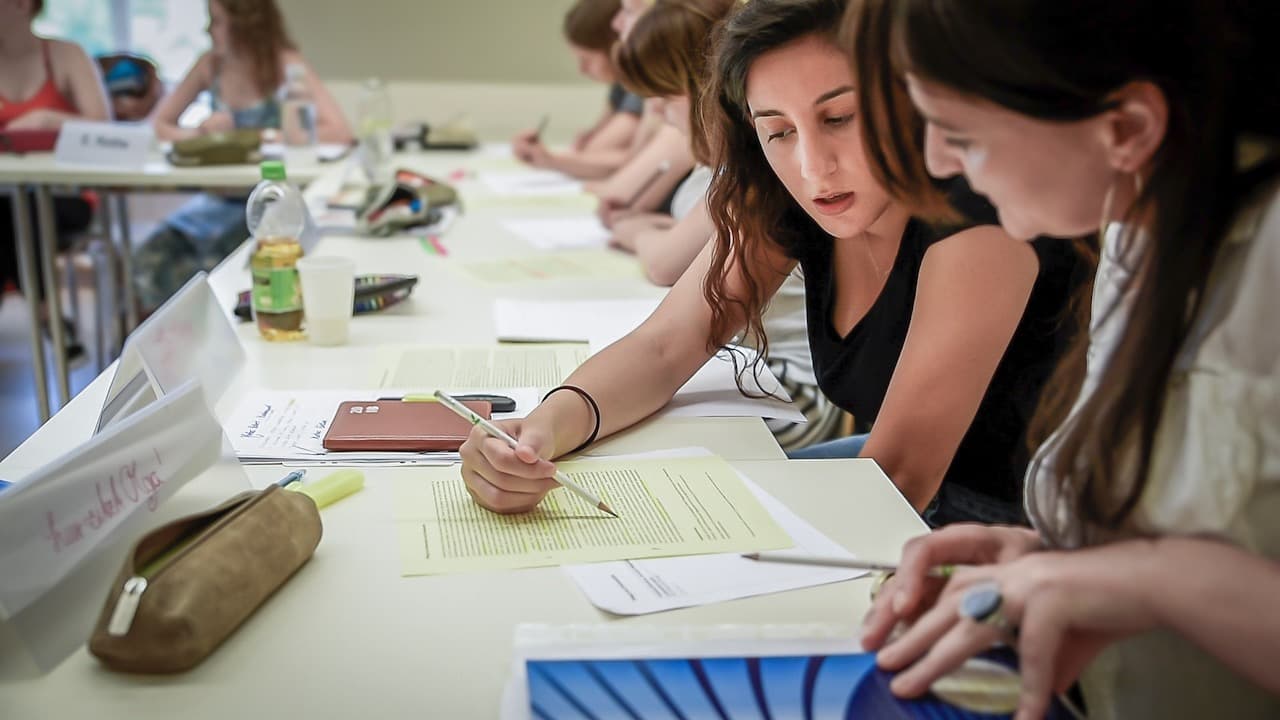University System
How can I study in a German university?
The higher education system in Germany is very diverse. There are hundreds of universities, colleges, vocational academies, colleges of music and art and much more in Germany. The umbrella term for all these educational institutions is "Hochschule". Higher education institutions in Germany may be funded by the state, church or private sector. In private colleges, you usually have to pay tuition fees. Finding the right university is not quite easy. Here is a brief overview of the specifics of the different types of higher education institutes available in Germany. You can learn more about German universities in our chapters "University Application" and "Student Finance".
Which university is the right one for me?
University (“Universität”)
Universities are scientific-educational institutes that focus on theoretical education. Universities are thus generally less practical than, e.g. universities of applied science ("Fachhochschulen") or universities of cooperative education ("Berufsakademien"). At universities, one can study all subjects: in principle, there are faculties of linguistics and cultural sciences, law, natural sciences, medicine, agriculture and forestry, economics, social sciences, nutritional sciences and engineering at all universities. Linguistics and cultural sciences are, in particular, only taught at universities. In principle, along with their principal subject, university students are free to pick a minor subject of their choice. A university's day-to-day teaching activities are generally not much controlled and regulated. That means each student is personally responsible for the organisation of their academic life. You will find a list of all the universities in Germany on studis-online.de.
University of Applied Sciences (“Fachhochschule”)
Universities of applied sciences are called "Fachhochschule" or simply "Hochschule" in Germany. They are more practice-oriented than universities. In this type of university, practical or internship semesters are planned for students in many subjects. Furthermore, here, education is more regulated than at universities: there are more small seminars, and lectures are not as crowded. In a university of applied sciences, one can study different subjects, but Linguistics and cultural studies are usually not among offered subjects. To study at a university of applied science, having a so-called "Fachhochschulreife" (National Vocational Qualification) is sufficient. After the university entrance qualification (Abitur), the "Fachhochschulreife" is the second-highest school-leaving qualification which one can obtain in Germany. You can find a list of all the universities of applied science in Germany on studis-online.de.
University of Cooperative Education ("Berufsakademie")
"Berufsakademien" or dual universities or Universities of Cooperative Education are for students who want to do a dual degree. In a dual course of study, you are training in a company and study at a university of cooperative education in parallel. That means your academic year is divided into theoretical and practical phases. During the practical phases, you are in the company- and in the theory phases you study at the "Berufsakademie". You usually need to start your dual course of study in September/October. You can find a list of all the universities of cooperative education in Germany on studis-online.de.
College of Arts and Music ("Musik- und Kunsthochschule")
If you want to study music, art, film, drama or theatre, you need to attend a college of arts & music, a college of film & television or a college of theatre & drama. To enter these colleges, you usually have to pass an entrance exam. For many music and art colleges, you also need a high school diploma or "Abitur". However, these colleges make exceptions for those with a special gift for the subject. At some music & art colleges, in principle, you do not need a high school diploma. On the studis-online.de, you can find a list of all art academies/colleges, conservatories, colleges of film & television and colleges of theatre & drama.
Colleges of Theology ("Theologische Hochschule")
At a college of theology, you can only study theology. In principle, colleges of theology are run by a church. If you want to be a minister, you must go to a college that corresponds to your denomination. You can find a list of all colleges of theology in Germany on studis-online.de.
College of Public Administration ("Fachhochschulen für öffentliche Verwaltung")
College of Public Administration ("Fachhochschulen für öffentliche Verwaltung" or "Verwaltungsfachhochschulen") are operated by the federal government and the federal states. Their main objective is to train administrative employees for financial management, police service, and other parts of the public sector. The theoretical training takes place in the Colleges of Public Administration, and the practical training in the relevant government offices. Students at the Colleges of Public Administration are paid during their training and cannot apply for BAföG. Keep in mind that you cannot apply to a College of Public Administration directly. You should apply to the authority for which you want to work (for instance, police). The authority then decides whether you can attend a College of Public Administration. You can find a list of all the public administration colleges on studis-online.de.
Important
On hochschulkompass.de, you can search among various types of higher education institutions and degrees and have them displayed for all possible courses of study.
Similar topics
Additional links
Study in Germany
Find out more about degrees, admission procedure and student finance in German universities.
University Guide
On erudera.com, you can search (in English) for suitable universities and programmes in Germany.
Kiron
A project to help you access higher education opportunities in Germany.
Our community in the forum
Quickly find answers to any question. Benefit from the experience of your community and exchange ideas.
Support on site
Are you looking for counseling centers, meeting points, and other services? Use our search engine.









